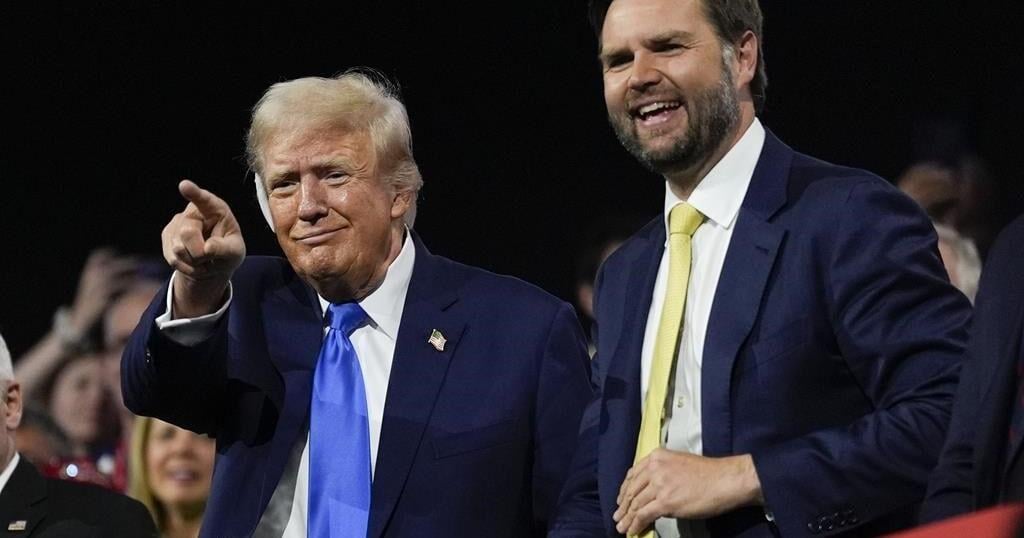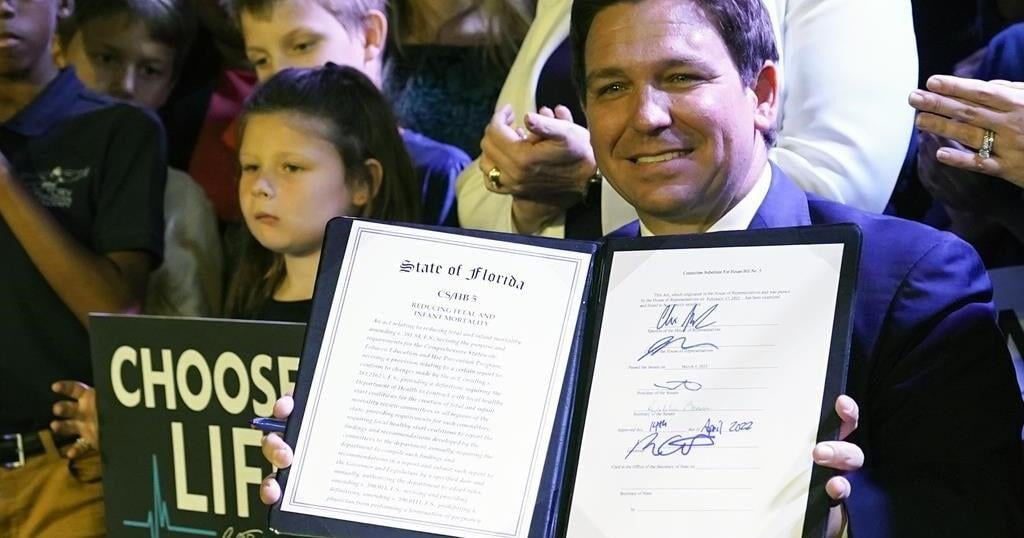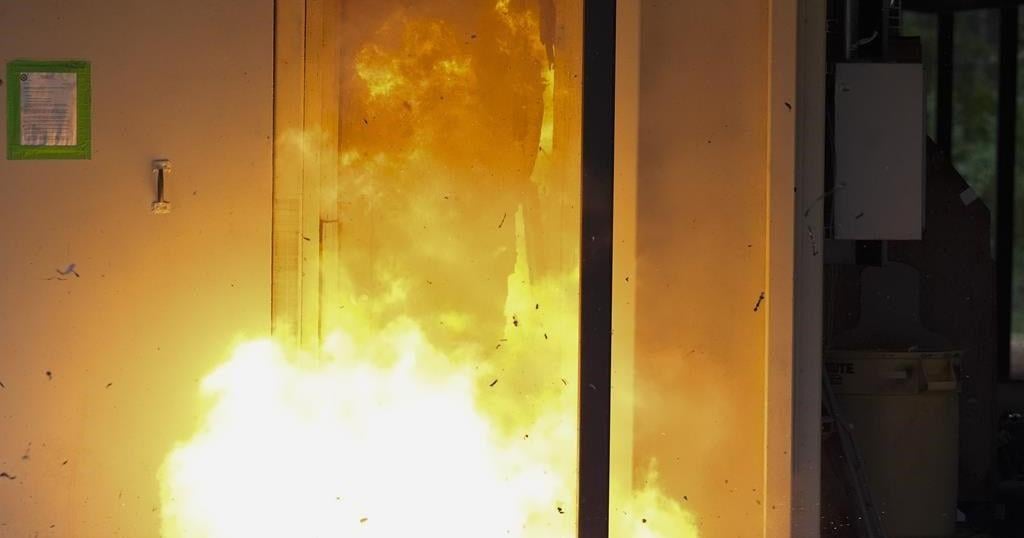MILWAUKEE – Republicans criticized President Joe Biden’s record on foreign policy at the national convention in Milwaukee as many party faithful are calling for America to step back from its contributions to the world.
Wednesday’s agenda — and its theme of “Make America Strong Once Again” — will give leaders around the world insight about the potential impact of a second Donald Trump presidency.
“No NATO. I want America strong,” said Kimberly Nguyen, wearing a star-spangled dress and draped in a Trump 2024 flag outside the convention.
Trump, who was officially confirmed as the Republican presidential candidate on Monday, has mused about increased tariffs, been critical of aid to Ukraine and repeatedly claimed he would not defend NATO members that don’t meet defence spending targets — of which Canada is one.
During a NATO leaders’ summit in Washington last week, Prime Minister Justin Trudeau promised to meet the spending target, which is the equivalent of two per cent of gross domestic product, by 2032.
But he has faced criticism over the lengthy timeline and the lack of detail on how Ottawa will make it happen.
Defence Minister Bill Blair has said the new pledge amounts to about $60 billion a year starting in 2032, but there’s been skepticism about how realistic the goal is.
Conservative Leader Pierre Poilievre, who is riding high in the polls, would not commit to the alliance’s spending target, saying he doesn’t make promises he can’t keep.
Trudeau faced a push from provincial leaders to speed up the spending timeline during a premiers’ meeting in Halifax earlier on Wednesday.
Manitoba Premier Wab Kinew expressed concerns that failing to meet the target could put Canada’s trading relationship with the U.S. in jeopardy — particularly if there’s a change in administration.
Outside the Republican convention, there was little empathy for Canada’s defence spending delay. Trump supporter Amy Lee said she supports the defensive alliance, but members must meet their commitments.
“Trudeau, we need you to pay your fair share to NATO,” Lee said.
All member countries directly contribute to the alliance’s operations at an agreed-upon formula, and Canada pays its required share of that.
Canada is one of about a dozen members that are not reaching the two per cent of GDP threshold for defence spending, though only seven members, including the U.S., spend more than Canada in real dollars.
Top diplomats from around the world are at the convention to try to make inroads ahead of a possible second Trump presidency and to push Republicans away from some of the pledges the former president has made about defence alliances and trade.
Kirsten Hillman, Canada’s ambassador to the U.S., said there are some Republicans who have an isolationist bent. Many others, she said, understand “America cannot be strong without having strong alliances.”
“There is no singular voice on foreign policy as it relates to a number of issues at this point in the Republican Party,” Hillman said in Milwaukee.
Wednesday is also scheduled to be the first opportunity for Trump’s running mate JD Vance to introduce himself to the world.
The 39-year-old Ohio senator has built a reputation during his short time in politics for fighting against current U.S. foreign policy and aid to Ukraine.
Vance argued against further funding to the war-ravaged country in a column for the New York Times in April, and told the Munich Security Conference earlier this year that he was there to deliver a “wake-up call” that America’s interests must come first.
Trudeau has been one of the most outspoken NATO leaders in support of Ukraine, including at last week’s leaders’ summit.
Vans with screens on the side were driving around the entrances of the convention in Milwaukee on Wednesday, displaying calls for Republicans to stand with Ukraine.
The Ukrainian Congress Committee of America, which funded the mobile messaging, said that was intended to remind Republicans that standing with Ukraine helps to defeat America’s enemies.
Hillman said Vance has some views on international policy and domestic policy that do not align with “Canadian values in some circumstances and certainly our government policy in others.”
But, she said, he is still a good choice for the relationship between the two countries.
The vice president pick has a Canadian connection: Jamil Jivani, the recently elected Conservative MP for Durham, has called Vance his best friend from Yale.
But, Hillman added, he represents Ohio, which has a massive trading relationship with Canada. More than a third of the state’s exports go to Canada.
“Having someone with that understanding of the importance of the Canada-U.S. economic relationship is a good thing for Canada.”
This report by The Canadian Press was first published July 17, 2024.
— With files from The Associated Press and Lyndsay Armstrong in Halifax
























